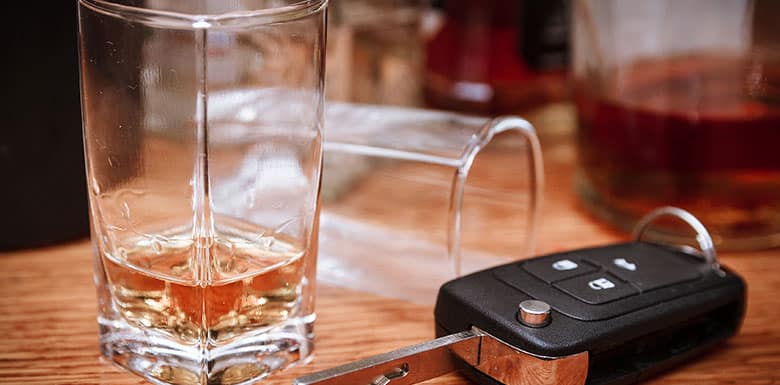
Can I Lose My License After a DWI in Texas?
Published: Sep 07, 2018 in Criminal Defense, DWIIn Texas, a conviction for driving while intoxicated (DWI) can carry harsh penalties, including fines and jail time. If you have been accused of this crime, you may be asking yourself, “can I lose my license after a DWI?” The truth is that the courts consider many factors when determining penalties for DWI crimes, such as the number of past offenses and blood alcohol content (BAC).
Houston DWI lawyer Ned Barnett understands that a criminal conviction can have a permanent impact on your life, and he’s prepared to help you with your case. Call The Law Offices of Ned Barnett at (713) 222-6767, or reach out through the online form to see how we can help.
How Does Texas Define a DWI?
When you face charges for DWI, it means that you allegedly operated a motor vehicle under the influence of alcohol or another illegal substance. Texas uses (BAC) to determine whether or not a person is driving drunk. These BAC limits are listed below:
- 0.08 percent for those who are 21 or older
- 0.04 percent for commercial drivers
- Any detectable amount for those under the age of 21
Administrative License Suspension
In the justice system, criminal penalties are only imposed if you are convicted, whether this happens as a result of entering a plea or being found guilty at trial. What is unique about being charged with a DWI is that you can face an Administrative License Revocation (ALR) as soon as you are suspected of driving while intoxicated. This is separate from the criminal DWI license suspension you could face upon being found guilty.
In Texas, all drivers are subject to implied consent. This means you cannot refuse a chemical test if you are ordered to take one by an officer who suspects that you are impaired. Refusing to take such a test is seen as a violation of implied consent, and the punishment is immediate license suspension. You will also face administrative penalties if you fail a chemical test.
The ALR penalties in Texas are as follows:
DWI Test Refusal
- At minimum, a 180-day suspension for a first offense
- At minimum, a two-year license suspension for a second offense within the past 10 years
DWI Test Failure
- 90-day license suspension for a first offense
It is important to note that the second offense for ALR penalties considers previous DWI test refusal, test failure, and DWI suspension. This means that even if you are refusing a chemical test for the first time, having failed a test a year earlier would result in a two-year license suspension.
If you’ve asked yourself, “can I lose my license after a DWI,” contact us right away.
Criminal License Suspension
If you are convicted of driving while intoxicated, you will likely face an additional period of license suspension. The severity of your penalty depends on how many times you have been convicted of a DWI in the past.
- First DWI offense – license suspension of up to one year
- Second offense – license suspension of up to two years
- Third offense – license suspension of up to two years
- DWI with a child in the car – Up to a 180-day license suspension if the child was under 15
What Are My Options?
If you fail or refuse to take a chemical test, you can contest the suspension, but only if you request a hearing within 15 days of your arrest. If you request a hearing, you will receive a Notice of Suspension/Temporary Driving Permit, which will allow you to continue driving on your license until your hearing date arrives.
If you are convicted of a DWI for the first time, you may be able to obtain an occupational license. However, this license can only be used to drive to and from locations that are deemed necessary to accomplish essential duties. This might include work, school, and the homes of family members.
Contact a Houston DWI Lawyer for Help
When you’ve been arrested and charged with an alcohol-related driving offense, you’re likely asking yourself, “can I lose my license after a DWI?” With his years of experience defending Houston-area clients, DWI lawyer Ned Barnett understands the defenses that can be used to fight for the best outcome in your case. To schedule a free and confidential case consultation, contact The Law Offices of Ned Barnett at (713) 222-6767 today.